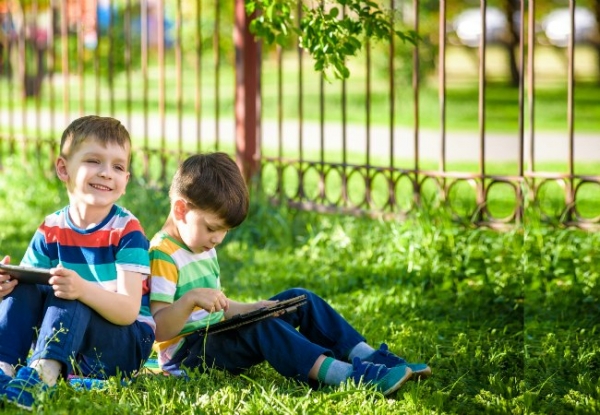Summer is not all rest and relaxation for kids who thrive on routine and predictability. Kids with anxiety thrive when they know what to expect. Delayed bed times, an increased intake in sugar, constant transition, if your child is enrolled in various weeklong camps, and even travel, can contribute to increased anxiety. Summer might be great because it allows for flexibility and spontaneity, but too much of a good thing can certainly throw a wrench and create an otherwise choppy summer. The name of the game during summertime, is also balance. Or balance with a little indulgence. The key is to find how much routine and predictability is enough to keep anxiety at bay. Here are nine helpful hints to maintain calm and order through the home stretch of summer.
- Go to bed on time. Sleep is such an integral part of brain development and overall mental and physical health, that getting to bed at the proper time can be crucial when it comes to managing anxiety in kids. Not all hours are created equal. And getting to bed later can mean less restful sleep. Sometimes getting to bed later can mean kids wake up earlier and lose sleep. Keeping bedtime routines is challenging during the summer, especially since it remains light out later. But maintaining a consistent bedtime is perhaps one of the most effective and manageable ways to help your child well maintained during summer.
- Keep a balanced diet. A little indulgence never hurt anyone but too much of a good thing can definitely throw a child’s chemistry off. By helping your child maintain a balanced diet, eat controlled portions and consume plenty of water, especially in the heat, you can help your child feel well both physically and emotionally and reduce anxiety.
- Exercise. Those endorphins are especially powerful in helping ward off anxiety in kids. Make sure they’re getting plenty of time to run around outside and get some sun, is a great way to release energy and angst.
- Limit Screen time. Too much screen time has been linked with anxiety. But screen time can contribute to anxiety also because of the content. It’s hard to monitor what your child is watching, especially if they’re choosing content on YouTube. And sometimes kids get frightened and anxious by what they see for reasons that aren’t always obvious.
- Maintain familiarity. Embarking on new adventures and trying out different camps while making new friends can be eventful and fulfilling. But constant newness and transitions where new faces, rules, expectations, and skill-sets are being introduced can make even the most well adjusted child fraught with some anxiety and result in meltdowns. If childcare is necessary throughout all of summer, try to maintain at least some familiarity for your child, whether it’s enrolling them in the same camp for several weeks or finding some friends to embark on new adventures with.
- Pay special attention to allergies. Although spring is the season more correlated with a spike in allergies, it’s important to get your child’s allergies under control during all seasons. Recent studies show there is a link between allergies and anxiety. While anxiety can certainly exacerbate allergy symptoms, the study seems to suggest that the nuisance of allergic symptoms can contribute to anxiety.
- Don’t over schedule. Summer can be thought of as the time to catch up on academics or give your child a more advantageous footing. If this is your well-intentioned mentality, keep your schedule in check and make sure not to jampack your child’s schedule, which can be taxing on your child’s mind and body. Summer should also be a time to catch up on rest and be refreshed for the new school year.
- Manage vacations. Travel is fun, of course, but traveling can also be very stressful for kids and parents, who may cycle the stress back and forth to each other. One way to reduce anxiety during travel is to incorporate some downtime so kids can become acclimated to a new destination or time zone. Otherwise, it’s easy to return from vacation even more exhausted than when you left.
- Spend quality time. There are few things more effective than creating a balanced, confident, well-adjusted child than having some quality bonding time between parent and child. Simple stress-relieving activities like a having picnic, biking or drawing together could do more for your child than a sports camp or academic program. You won’t just be building a stronger bond, but a stronger child.

Deborah Song
